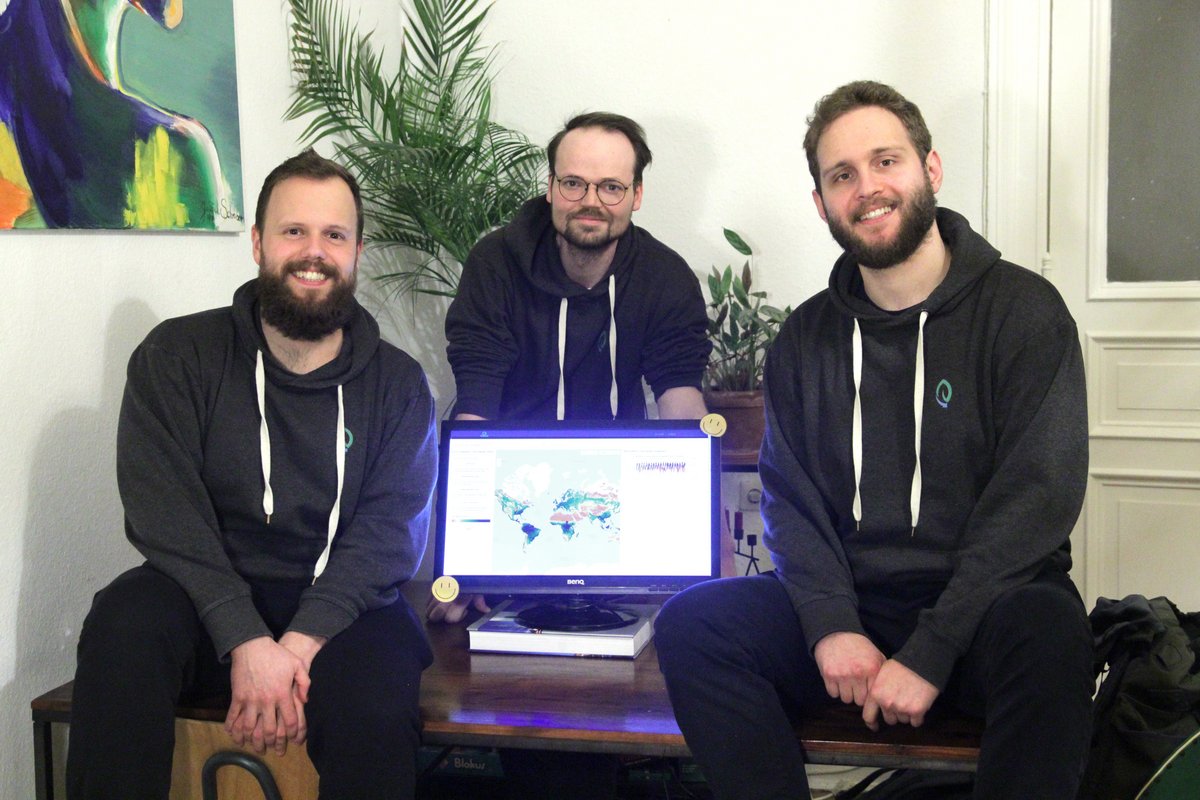Interview with BTUAlumni Startup CQuest (ERM)
If you want to improve the world and the climate, the BTU is the place to be. Jakob Levin shows how it's done. He studied Environmental and Resource Management (ERM) and founded the startup CQuest with former fellow students. Their company uses satellite imagery to quantify atmospheric carbon sequestration in soils. Currently, measurement in carbon markets is complicated, time-consuming and expensive. CQuest wants to change that!
Hi Jakob, how did your team come together and how did you come up with your startup idea?
Stefan Gönner, Julian Kremers and I met in Cottbus in 2012 while studying ERM. During and after our studies, we worked together in various capacities, most recently at a Berlin-based startup that uses satellite imagery to help infrastructure networks control vegetation. All three of us are actively engaged in the fight against climate change and with our skills we found a niche where we could really contribute. That's how CQuest came to be founded.
What skills did your studies give you to be able to push a technology like this?
ERM lays a perfect foundation for our venture. We learned a deep understanding of carbon markets from a political, economic and social perspective here. Julian and I continued our education in geographic information science after receiving our bachelor's degrees. With the academic expertise and practical work experience, we are well equipped for our venture.
You have received an EXIST grant from the German Federal Ministry for Economic Affairs and Energy. Could you please tell us something about that?
We first heard about the EXIST grant from our startup network. EXIST supports founders from science to further develop their business ideas. I can only recommend it. We approached Katrin Baumert from the BTU Startup Service and Prof. Dr. Schmidt in July 2020. The application is very elaborate, so we already invested a lot of time and effort in the idea. It then took us about six weeks to complete all the documents, and after about eight weeks we received a positive response from the EXIST team. Since January 2021 we are officially funded! The funding includes a monthly income as well as coaching sessions and a material budget.
How did it come about that you are founding in Cottbus?
Cottbus plays a special role in CQuest's history, not only because Stefan, Julian and I met during our studies, but also because of the close community around environmental and resource management at BTU. We were initially in contact with TU-Berlin to apply for the EXIST scholarship there. After a few weeks, however, we decided on Cottbus because we realized that we were missing the personal aspect in Berlin that we only found at the BTU. In Cottbus, it's also much easier to make a difference, and that's important to us.
What can you recommend from your experience to others who have startup ideas?
Pick up the phone! We were only able to build a large network of experts in our industry by talking to everyone we could find. Anyone with an idea should also contact BTU Startup Services. They can help you on your way right away.
What are your next steps?
Now that we have secured basic funding from the BTU and EXIST, we are looking for research partnerships such as the Leibniz Center for Agricultural Landscape Research and the state of Brandenburg to obtain validation data for our algorithms. Development is the buzzword par excellence right now. Of course, we will also be looking for interns* and collaborators* during the year! Interested parties are welcome to contact me at Jakob@CQuest.ai.

